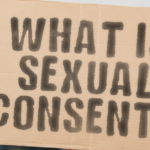Should Uniform Affirmative Consent Laws Be Enacted Across Australia?

Victoria is the latest jurisdiction to introduce affirmative sexual consent laws, becoming the third Australian jurisdiction to enact laws which require those who participate in sexual activity to take positive steps to ensure the other party or parties are consenting.
The move has raised a discussion regarding such laws should be passed across Australia – whether by individual states and territories – or in a unform manner under federal legislation.
Sexual offence laws in Victoria
At the end of July 2023, a range of new sexual offence laws came into effect in Victoria which have largely adopted recommendations made by the Victorian Law Reform Commission last year in its Improving the Justice System Response to Sexual Offences report.
The general reforms include:
- The adoption of an ‘affirmative consent model’ similar to the laws which already exist in New South Wales and the ACT, including an updated definition of consent;
- making ‘stealthing’ a criminal offence; and
- changes to image-based sexual abuse laws.
The reforms also include changes to criminal procedures ostensibly to better protect complainants, such as directions given by judges to juries that are favourable to alleged victims and are likely to increase rates of convictions – similar to the sexual consent directions recently introduced in New South Wales.
Shifting the onus of proof from the prosecution to the defence
‘Affirmative consent’ means that when courts must determine whether consent was given in sexual assault cases, the onus will be on the accused person to demonstrate that they took reasonable steps to seek consent, and also that they had a ‘reasonable belief’ that the other person consented to sexual activity.
Under the amendments, reasonable belief now relies upon whether the other person/s willingly and actively agreed to be involved in the sexual act.
What is affirmative consent?
The new Victorian laws are similar to affirmative consent laws already in force in New South Wales and the ACT.
Each person engaging in a sexual activity must seek consent of the other person/s involved, for each type and stage of the interactions.
Under these laws, there can be no ‘assumption’ that a person consented.
This does not mean filming or recording another person without their knowledge – that could be breaking a different law.
The question needs to be asked by the person initiating the sexual activity.
They will know they have consent, under the law, by receiving positive confirmation there is approval for the ensuing act.
Under the law, a person would be considered as providing consent by, for example:
- Saying yes
- Removing an item of clothing
- Providing a physical gesture that they are happy to continue
The introduction of affirmative consent laws have been controversial, but it’s important to remember that they are not designed to interfere in loving, consensual partnerships – they are designed to prevent sexual assault, and to prevent false allegations of sexual assault.
Definition of consent
Under the changes, the definition of ‘consent’ has also changed in line with the adoption of the affirmative consent model. Consent is now defined as a ‘free and voluntary agreement’. Important changes to this section are that:
- A person does not consent to an act just because they do not resist the act verbally or physically; and
- Even if a person has previously consented to a previous sexual act (whether the same or different), does not mean that they will provide consent in the present situation. The same applies in New South Wales. For example, if someone consents to a sexual act at one time, it does not mean they consent to the same act some time later, or a different act, some time later. Anyone engaging in sexual activity needs to keep the lines of communication open, at all times.
Significant changes to the law include new circumstances in which a person does not provide consent. These are:
- force, harm or fear of force or harm of any kind;
- coercion or intimidation;
- abuse of a relationship of authority or trust;
- false or misleading representation about payment for commercial sexual services; and
- agreement that a condom will be used. If a condom is not used, removed or tampered with (otherwise known as ‘stealthing’) it will be considered a crime.
Stealthing essentially means that consent has not been given.
Changes to image-based abuse laws
The new reforms also include changes to image-based sexual abuse. It’s important to know that the very same definition of consent applies to the production and distribution of intimate images. There are increased penalties for this offence.
The definition of ‘intimate image’ has also been expanded to include digitally created or digitally altered images. The definition has been expanded to be more inclusive of gender diverse people.
Under the new laws, courts are able to make orders for the destruction or disposal of intimate images produced or distributed without consent.
Should affirmative consent laws be the same across Australia?
The introduction of affirmative consent laws that differ between jurisdictions raises the question: should these laws be consistent across the nation, given there has become a widespread acceptance of the need to ensure consent to sexual conduct and our understanding of what consent means in present day Australia?
Those who believe this should be the case point to the fact the federal government could achieve this goal by introducing affirmative consent requirements into Commonwealth legislation, such as the Criminal Code Act 1995 which already contains a range of sexual offences.
Indeed, the original intention of that piece of legislation was to implement a uniform criminal code which applied across the nation; but that goal fell through due to resistance from individual states and territories who wished to have their own nuanced offences legislated.
It’s an interesting question, and perhaps one for further debate.
Receive all of our articles weekly
Related Articles
RELATED LEGISLATION
- Section 61HG Crimes Act 1900 | Application of Subdivision: Sexual Consent Laws
- Section 61HH Crimes Act 1900 | Definitions Relating to Sexual Consent Laws
- Section 61HK Crimes Act 1900 | Knowledge about Consent
- Section 61HI Crimes Act 1900 | Consent Generally
- Section 61HJ Crimes Act 1900 | Circumstances in Which There is No Consent







